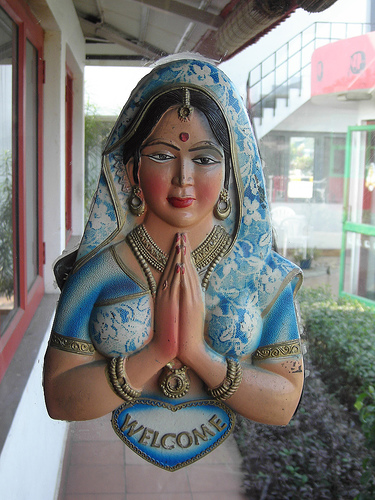
you are more than likely to be asked a question that roughly translates to, “What is your good name?”
Despite the merriment this phrase could sometimes induce when we heard it in English – we Indians are a wicked lot, we make fun of almost everyone, including ourselves and our myriad accents – it’s a charming question.
First, because the questioner wants to know what your “real” name is, as opposed to your nickname.
The name your parents bestowed upon you at birth, signifying their hopes and aspirations for you.
And people want to do you the courtesy of addressing you by that name.
Second, because the inclusion of “good” in that sentence implies that your name is, indeed, good.
That you are blessed to have it, as opposed to just having a name instead of a number.
It seems to me that in public relations, everything we do for our organizations and/or clients is in pursuit of just that: a good name.
When we pursue relationship-building with our stakeholders, we’re trying to build goodwill through our outreach campaigns and programs.
We want people to feel good about supporting an organization, or doing business with a brand, or sharing information that might not have any direct benefit to them.
Because they believe in the overall “goodness” of that organization. It’s a name they feel comfortable being associated with.
And now, with social media, we’re extending that quest to the social Web.
After all, who wants to do business with a company that has a “bad” name? Or with a person whose reputation is dodgy? Who even wants to talk to someone like that?
When I woke up this morning
the headline that jumped off my screen was about a man who has been focused on redefining how we feel about the United States and its “good name,”among others.
Or, as the L.A. Times put it, Wikileaks founder Julian Assange arrested in sex case.
Regardless of whether you think Assange was right or wrong as far as Wikileaks goes, there is one thing that I don’t think can be questioned: he doesn’t have a universally “good name” any more.
Maybe you’ll associate his name with the underdog, the vigilante, righteousness.
But you might also associate his name with irresponsibility, self-righteousness, fanaticism.
I am not opining on whether or not what Assange did – as far as Wikileaks goes – was right or wrong. Enough people have already done that.
But I think it will be very, very hard for Assange to recover any significant amount of goodness to his name, at least in the short term.
If he hasn’t already taught us lessons on being prepared for the unthinkable, he’s teaching us all a very important lesson today, particularly those of us who work in the public relations business.
We only have one good name.
We need to treat it with respect.
Live up to – or exceed – it.
Because once it’s damaged, it’s so much harder to build back up to what it was, than if the damage hadn’t occurred, or been contained, in the first place.
Image: Heart Industry via Flickr, Creative Commons



![[EVENT]: PR Hacks for Small Biz (online)](https://shonaliburke.com/wp-content/uploads/2021/06/FB-Ad-1200x800-01-01-01-Copy-500x383.jpeg)





[…] Because you do not have a good name. […]
So true. Reputation is everything – it’s what makes us influential as a person or a professional. It’s especially fragile in this online environment driven by social media, where anything anyone says will be imprinted forever and will continue inflicting damage indefinitely. All the more reason to zealously guard and protect it.
P.S. While I was reading your post, an image popped up in my head, of someone asking me ‘What’s your good name?’ in that typical Indian accent :)
Heh, Farida, I hear that accent too. :) I think a lot of people are surprised that, when I open my mouth and am not spewing silly stuff (or ABBA songs), I don’t have it. And if that image popped up in your head – this blog post succeeded, because that’s exactly what I was trying to evoke!
Thanks so much for stopping by. I don’t think folks realize how almost everything we say and/or do is a reputation maker or breaker.
[…] This post was mentioned on Twitter by Shonali Burke and Shane Jacob, Amrit Pal S.. Amrit Pal S. said: RT @shonali: New: What Is Your Good Name? http://t.co/qWhQSLq some thoughts on #pr, #socialmedia and reputation […]